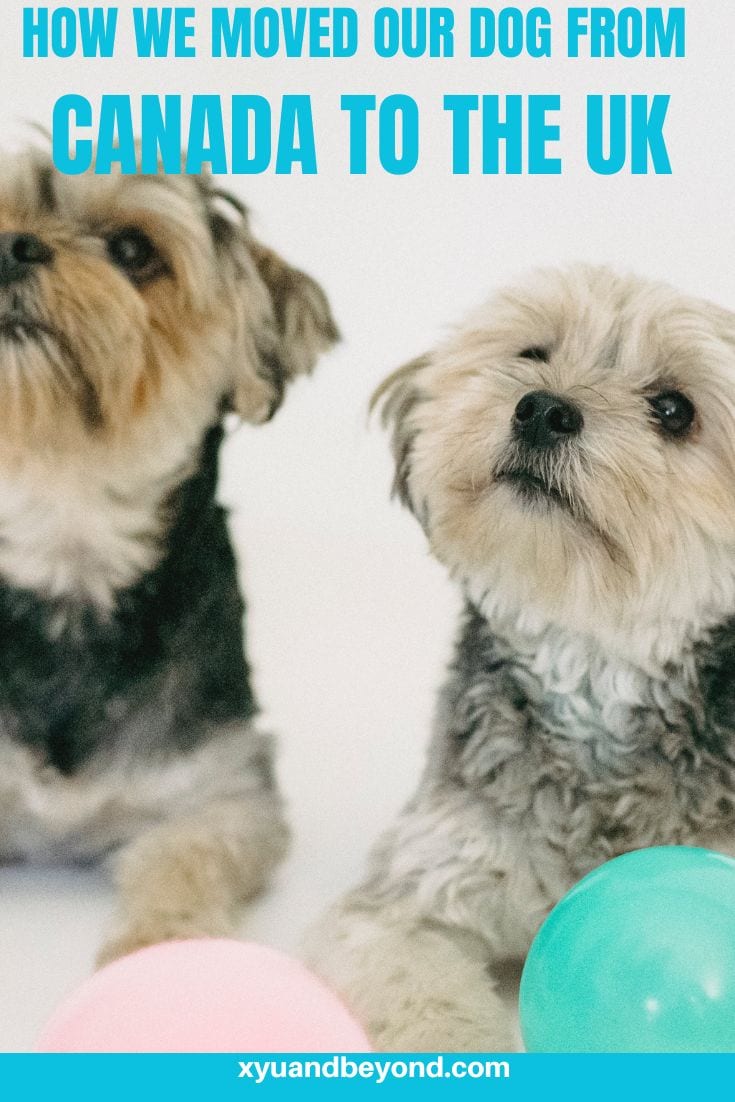Bringing a pet from Canada to the UK
Planning to travel from Canada to the UK and wondering if you can bring a pet? You’re not alone! Many pet owners face this question and it’s important to know the requirements and regulations for traveling with pets. It took me ages to figure out how to get my son’s dog to England and I think I lost a few years to anxiety and lack of answers to my questions while trying to arrange it. In this article, I will give you all the details for bringing your dog from Canada to the UK and hopefully provide answers to the most frequently asked questions.
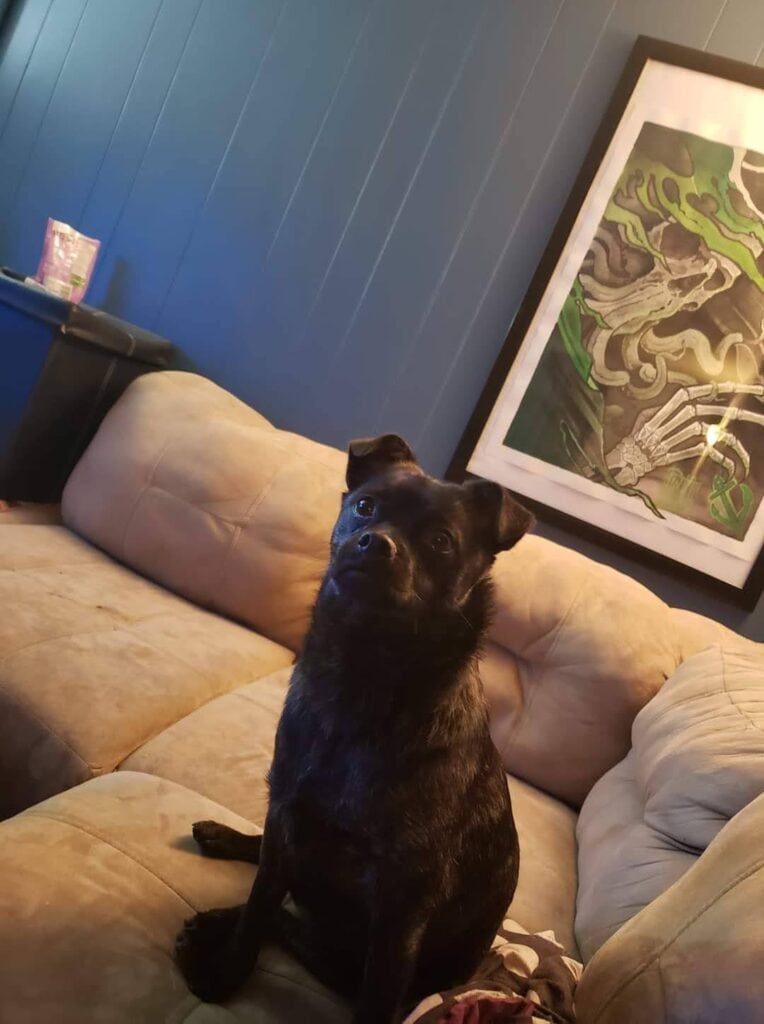
Bringing a pet from Canada to the UK
Bringing your pet to the UK involves several steps and requirements. One of the first things you need to do is ensure that your pet is microchipped. This is necessary to identify your pet and comply with UK regulations. Next, your pet must be vaccinated against rabies. Ensure that the vaccination is up to date and has been administered at least 21 days before traveling. Your pet must also be de-wormed a maxium of 5 days before it travels and certified by your personal vet and those documents can then be take to the CFIA or USDA offices for certification and approval.
Your pet’s vet will be required to sign a Health Certificate and a document certifying the microchip and its number. These documents are then taken to (in Canada) a CFIA office where an official government veterinarian will approve them and ensure they are satisfactory for the purposes of pet travel and that the animal has no health problems and is fine for travel to the final destination.
Steps to organizing your pets travel
- Ensure the animal is microchipped if required and that it is a 15 digit code
- Obtain the 15 digit microchip information and an official veterinary certificate is obtained.
- Ensure you pet has its up to date rabies vaccinations, 21 days prior to flying and the vet confirms this in a Health Certificate
- 5 days before you fly make sure your pet has an appointment with the Vet for the tape worm treatment and have the vet fill out the necessary forms to be taken to the CFIA Vet for approval.
- Bringing a pet from Canada to the UK
- Bringing a pet from Canada to the UK
- Steps to organizing your pets travel
- What documents are required?
- What vaccinations are necessary?
- What is the process for importing a pet into the UK?
- Do dogs need to be quarantined when going to the UK?
- Are there any restrictions for pets entering Northern Ireland?
- What are the pet import requirements for Wales?
- Pet import regulations for bringing an animal to Scotland, and the Isle of Man
- Can I travel within the UK with a pet from a non-EU country?
- What kind of animal health certificate is needed for pet travel?
- In-Cabin Pet travel to the UK
- What are the requirements for exporting pets from Canada to the UK?
- IATA Approved crates
- Bringing a ferret to England
- What airlines fly from Canada to the UK with pets
- Air Canada – Edinburgh, Glasgow, London Heathrow (HARC), Manchester
- British Airways
- Flying a dog or cat into Manchester Airport
- Flying a dog or cat into London Heathrow Airport
- Heathrow Animal Reception Centre
- Can I bring my cat or ferret to the UK?
- What are the alternatives for bringing pets to the UK?
- KLM & Air France
- Getting your dog (pet) from Paris CDG to the UK
- Book a pet taxi
- Move to the UK – How much does it cost to bring a pet to the UK?
- Bringing your dog (Pet) to the UK conclusion
Xyuandbeyond is reader-supported. When you buy through links on our site, we may earn an affiliate commission. You can read my privacy policy here.
What documents are required?
When traveling with your pet to the UK, you will need to obtain an official Canadian Food Inspection Agency document of health. This document will contain proof of your pet’s microchip, rabies vaccination, and other necessary information. It’s important to consult with your veterinarian to make sure you have all the required documents in order before requesting the CFIA documentation.
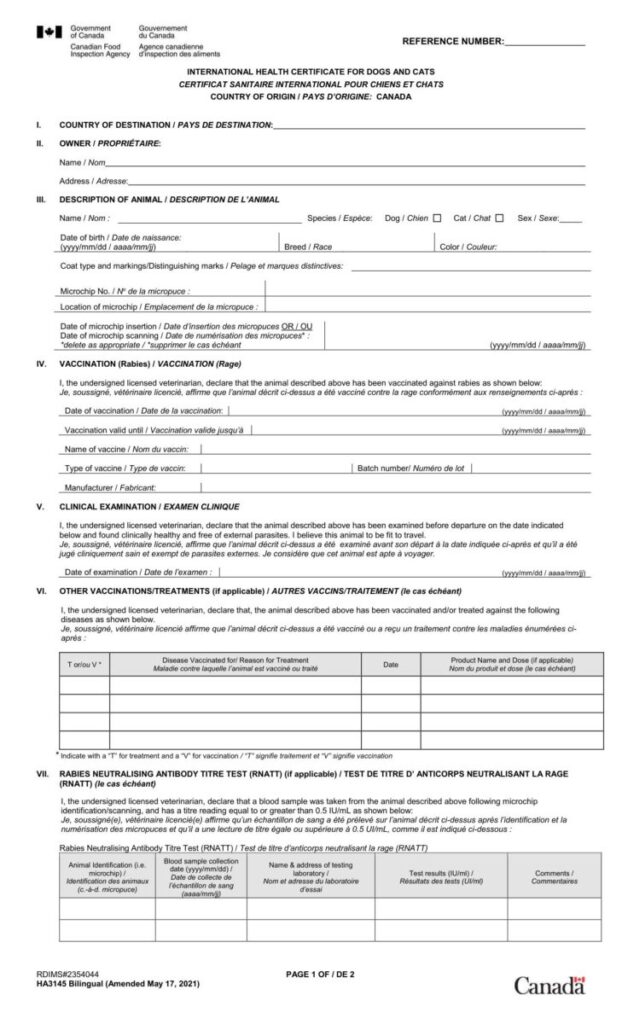
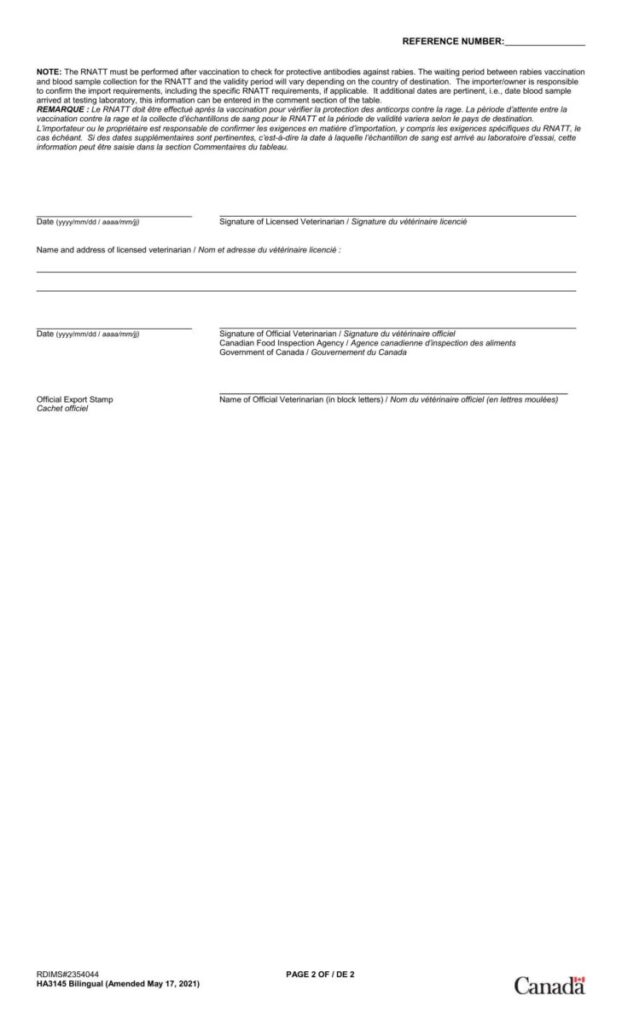
What vaccinations are necessary?
Aside from the pets rabies vaccination, your pet should also be treated against tapeworms. These treatments are required for dogs entering the UK from certain countries. Make sure to consult with your veterinarian to ensure your pet meets all the necessary vaccination requirements.
What is the process for importing a pet into the UK?
When importing a pet into the UK, there is generally no quarantine period. However, there are specific requirements that must be met. Your pet must enter the UK at an approved port of entry and the transportation must be done by an approved carrier. Upon arrival, your pet may be subjected to a documentary check and a microchip scan to ensure compliance with regulations.
Do dogs need to be quarantined when going to the UK?
As mentioned earlier, there is typically no quarantine period for pets entering the UK from Canada. However, if your pet does not meet all the necessary requirements or if there are any concerns about their health, they may be placed in quarantine until the issues are resolved.
Are there any restrictions for pets entering Northern Ireland?
When traveling to Northern Ireland with your pet, the same rules and regulations apply as when entering the rest of the UK. You will need to comply with all the necessary requirements, including microchipping, vaccinations, and documentation.
What are the pet import requirements for Wales?
If you’re traveling to Wales with your pet, the regulations are the same as for the rest of the UK. Your pet must be microchipped, vaccinated against rabies, and meet all the necessary import requirements. It’s important to comply with these regulations to ensure a smooth and hassle-free journey for your furry friend.
Pet import regulations for bringing an animal to Scotland, and the Isle of Man
In these guidelines, the term “United Kingdom” specifically encompasses England, Scotland, and Wales. However, it’s important to note that Northern Ireland, due to its border shared with the Republic of Ireland, continues to adhere to the EU Pet Travel Scheme.
If you intend to import a pet into Northern Ireland, please consult the pet import regulations specific to this region.Canada is considered a Part 2 listed country. A list of part 2 listed countries can be found here.
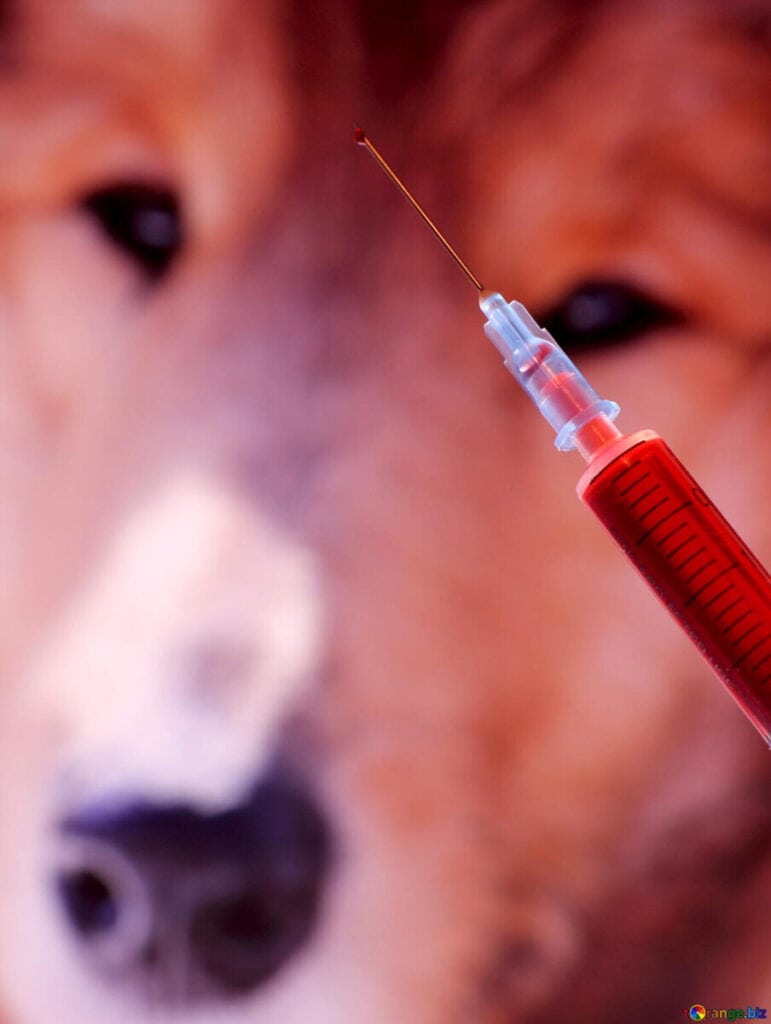
Can I travel within the UK with a pet from a non-EU country?
Yes, you can travel within the UK with a pet from a non-EU country as long as they meet all the necessary entry requirements. This includes microchipping, vaccinations, and any additional requirements specific to the country of origin. It’s important to check with your veterinarian and the relevant authorities to ensure compliance with all the necessary regulations.
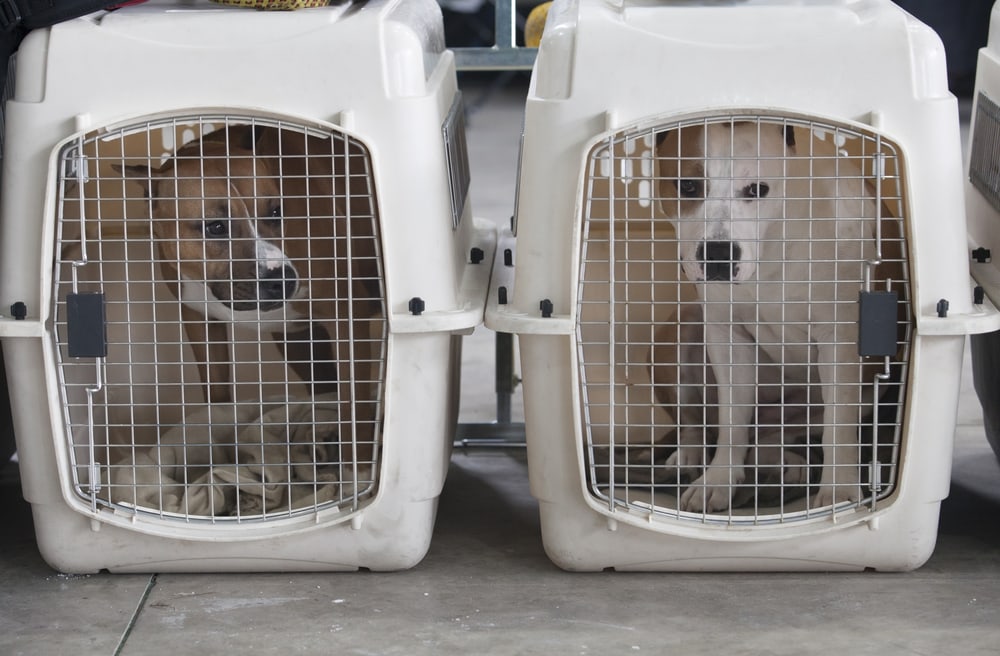
What kind of animal health certificate is needed for pet travel?
The type of pet health certificate required for pet travel to the UK may vary depending on the country of origin. For pets coming from EU countries, an EU pet passport is generally sufficient. However, for pets coming from non-EU countries, an official third-country certificate may be required. It’s important to check with your veterinarian and the relevant authorities to ensure you have the correct health certificate.
Rabies Certificate and De worming
Pets entering the UK must be accompanied by an official veterinary health certificate (non-commercial or commercial). The health certificate should be endorsed by a government veterinarian in the country of origin. For Canadian animals the Vet must provide a certification that the dog (or cat) has had a rabies vaccination within 30 days of the flight.
Your dog or cat must be de-wormed within 5 days of its flight to the UK from Canada. The Vet will then provide the Canadian Food Inspection Certificate that needs to go the local CFIA offices to be signed off and this is then provided to your animal transport offices.
Do I need to microchip my pet?
Yes, microchipping your pet is a mandatory requirement for traveling to the UK. The microchip must be ISO compliant with 15 digits and your pet’s unique identification number should be recorded in the pet’s passport or health certificate. This is crucial for identifying your pet and ensuring they can be reunited with you in case they go missing during the journey.
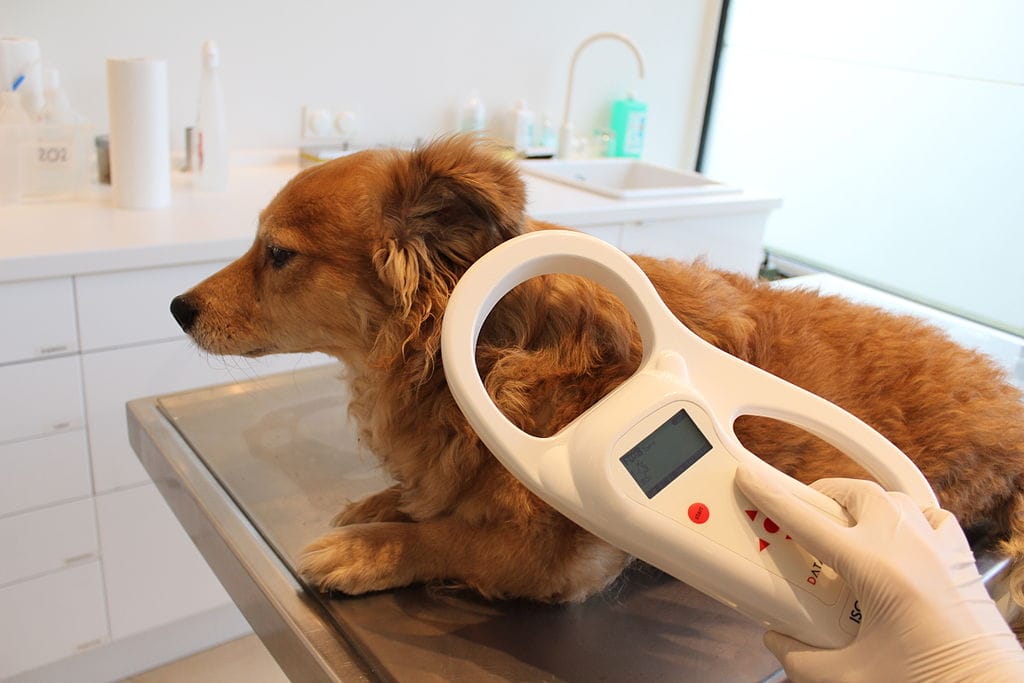
Bringing service animals or an emotional support dog
All dogs, including guide and assistance dogs (service dogs), must adhere to specific requirements when entering or re-entering the United Kingdom. These requirements include obtaining an Animal Health Certificate or a qualifying equivalent document. Additionally, dogs entering the UK must have a microchip, be vaccinated against rabies, possibly undergo blood testing, and receive treatment for tapeworm before their arrival, following an applicable waiting period.
For accurate and up-to-date information on these procedures, you can refer to the resources available on the website of the United Kingdom’s Department for the Environment, Food and Rural Affairs (DEFRA). It is essential to complete these steps before bringing your guide or assistance dog into the UK.
If you plan to enter the UK with your guide or assistance dog, especially by air travel, and wish to have your dog accompany you in the cabin, you should provide documentation demonstrating that your dog has received training from an accredited organization affiliated with either the International Guide Dogs Federation or Assistance Dogs International.
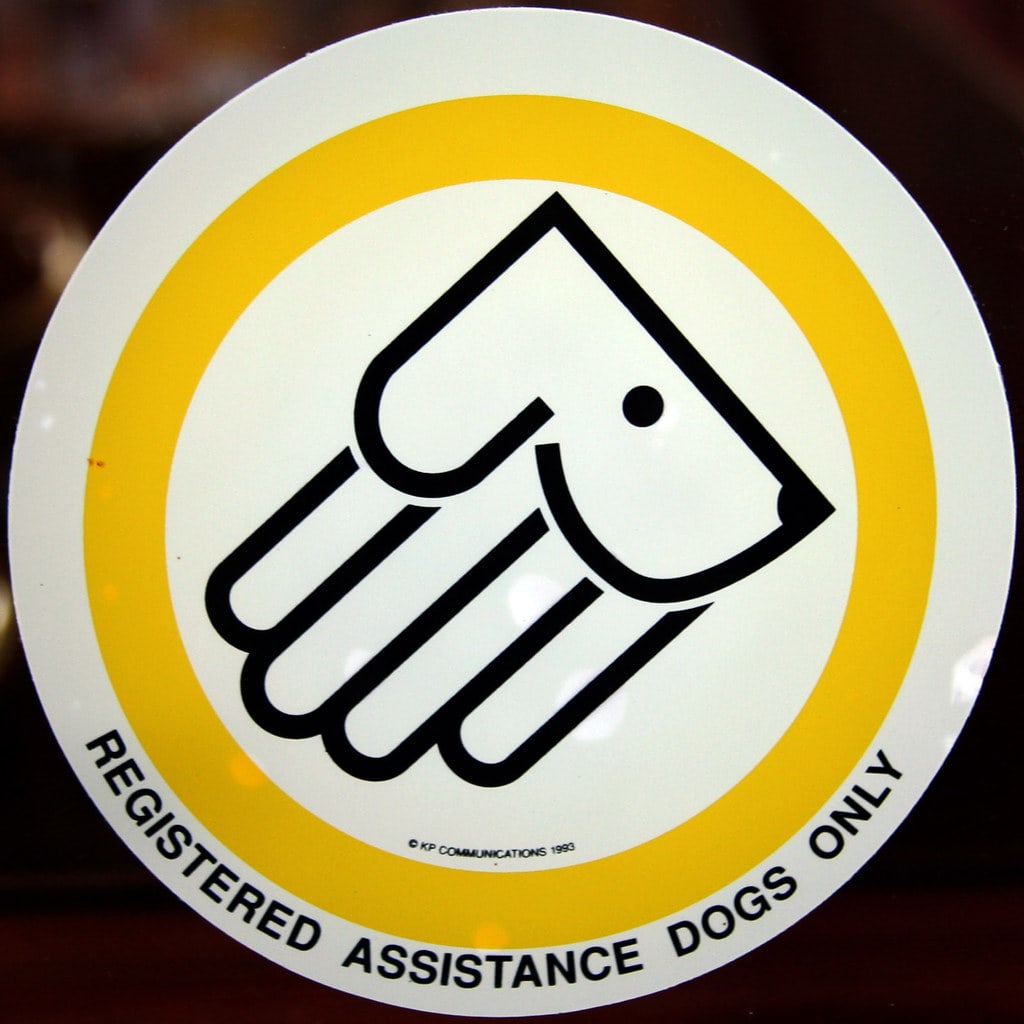
While unaccredited dogs are welcome in the UK, they may need to follow the same importation procedures as pet dogs. You can still bring an unaccredited dog into the UK, but if you choose to travel with it in the cabin of an aircraft or its equivalent, you may incur charges due to what could be considered an unauthorized landing.
For support animals with Air Transat when accompanied by certification and documentation and travelling with a person with a disability, emotional support and certified service dogs are welcome in the passenger cabin. You must have a filled in Request for Transport Service Dog form.
The Air Canada ESA policy dictates that only dogs may fly in-cabin with their owners. Air Canada does not accept any other animals as emotional support animals. You will be required to have an ESA letter but keep in mind that only small dogs are allowed to fly in-cabin larger than 11kg must fly cargo.
In-Cabin Pet travel to the UK
Most airlines will allow 2-4 pets in the cabin per flight. Small cats and dogs are welcome to travel in the cabin if the combined weight of pet and carrier is under 22 lbs (10 kg). Don’t count on this though as many airlines are now refusing animals in cabin.
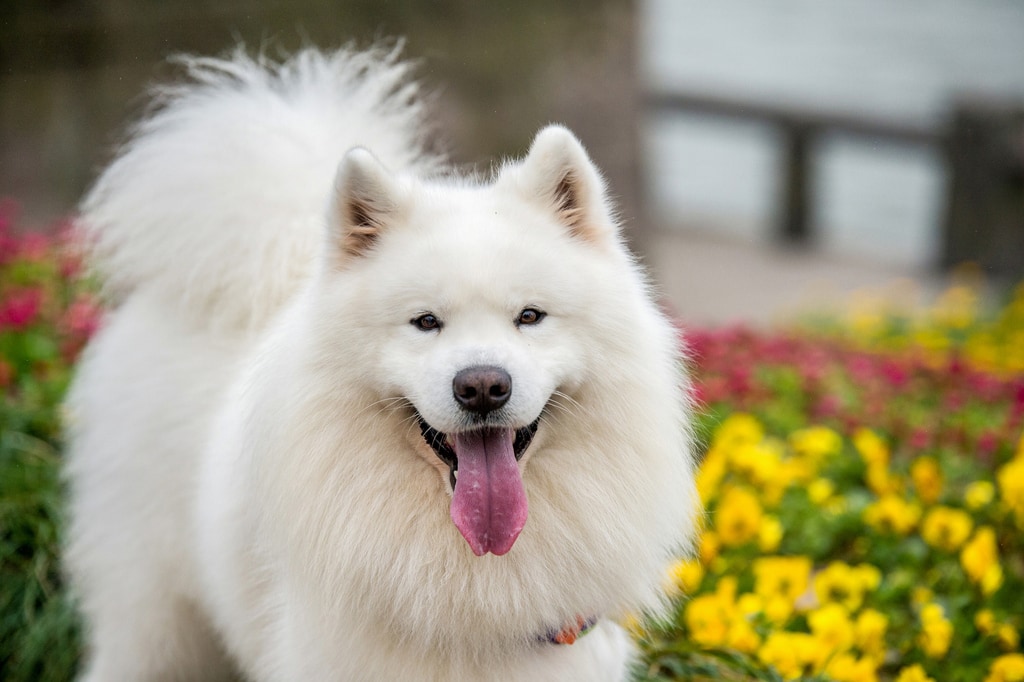
What are the requirements for exporting pets from Canada to the UK?
When exporting pets from Canada to the UK, you will need to ensure that your pet meets all the necessary requirements. This includes microchipping, vaccination against rabies, de-worming and obtaining an export health certificate. The export health certificate is issued by a governmanet authorized veterinarian and certifies that your pet is fit for travel and meets all the necessary health regulations.
These days unless your pet is a support animal or a registered service animal and you have the documents to prove it you will more than likely have to send your pet in cargo. Many airlines won’t allow you to book a space in manifest cargo you have to use an approved transport company and make your pets travel arrangements via them.
IATA Approved crates
Your pets requirements will depend (obviously) on the size of the pet and type of animal. You must use an IATA approved crate for your pet’s travel. The pet’s crate must be equipped with ventilation on all four sides, featuring a single door and secured by metal bolts (rather than plastic) to fasten the top and bottom halves of the crate together. The use of clips is not permitted for pet airline travel. In addition, there should be a clearance of 2-3 inches above the pet’s head or ears in general.
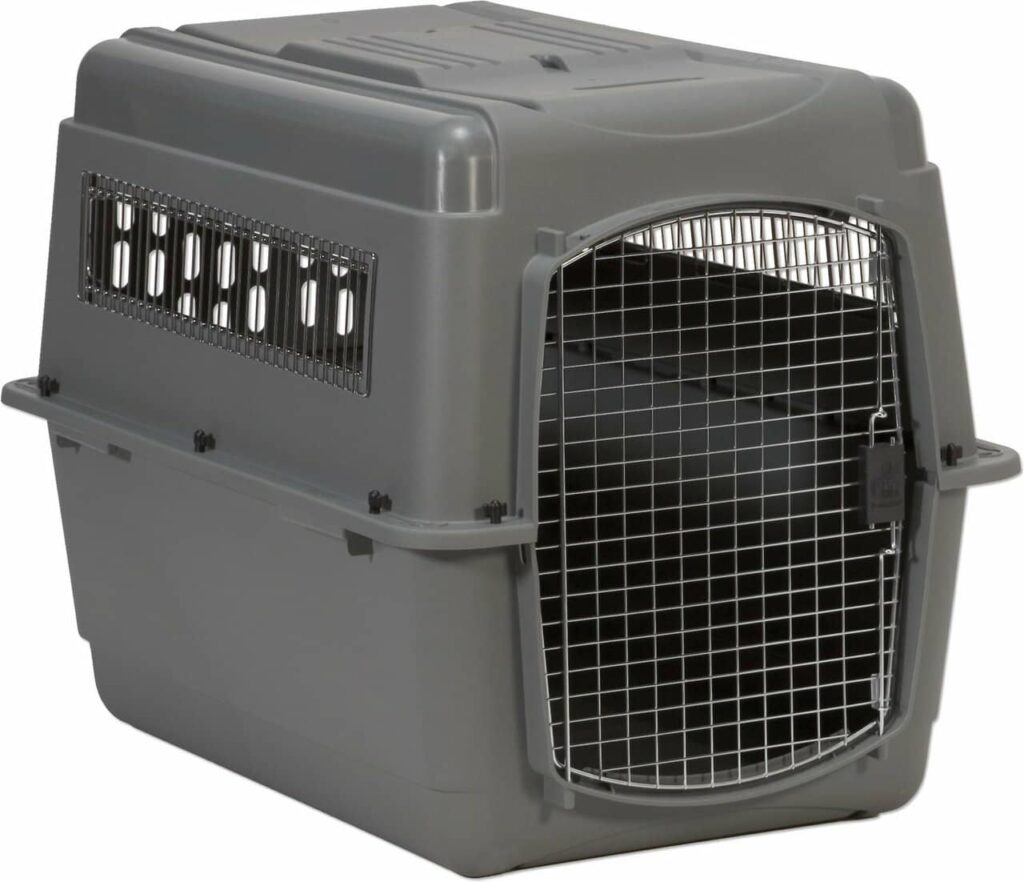
What is an export health certificate?
An export health certificate is an official document that certifies your pet’s health and fitness for travel. It contains important information such as vaccination records, microchip details, and the veterinarian’s declaration of your pet’s health status. This document must be obtained from an authorized government veterinarian (at the Canadian Food Inspection Agency) and presented when exporting your pet from Canada to the UK.
If you are from an unlisted country you must obtain a Rabies Antibody Titer Test having said that Canada is not an unlisted country so don’t panic as this is not required.
What is the difference between a pet passport or health certificate?
The main difference between the two is the length of time that they remain valid for. Pet Passports are valid for as long as you keep them up to date with relevant vaccinations. However, an Animal Health Certificate is only valid for one trip to the EU, therefore you would need a new certificate each time you travel.
What is a valid European Pet Passport?
An EU Pet Passport is a booklet or passport of the documents that your dog will need in order to travel to France, or other EU countries. With an EU Pet Passport, dogs, cats and ferrets are able to travel throughout the EU without enduring a quarantine period.
Pet passports include a record of any vaccinations your pet has had as proof that your pet is fit to travel. After Brexit, pet passports are no longer issued in Great Britain for travel to an EU country or Northern Ireland. They have now been replaced by animal healthcare certificates.

Bringing a ferret to England
I know this may sound a little weird but in England ferrets are treated like dogs and cats and have to fufill all the same requirements for importing to the UK. Ferrets are incredibly popular pets in the UK.
What airlines fly from Canada to the UK with pets
Air Transat – Manchester Airport
Air Transat is the airline I chose to use as we were flying from Toronto to Manchester. It says on the Air Transat site that the cost is around $250 Canadian to book your pet as cargo. Unfortunately this is where the nightmares began. When I attempted to contact AT to book a space in cargo I was told by customer service to contact the cargo shipping end of the business.
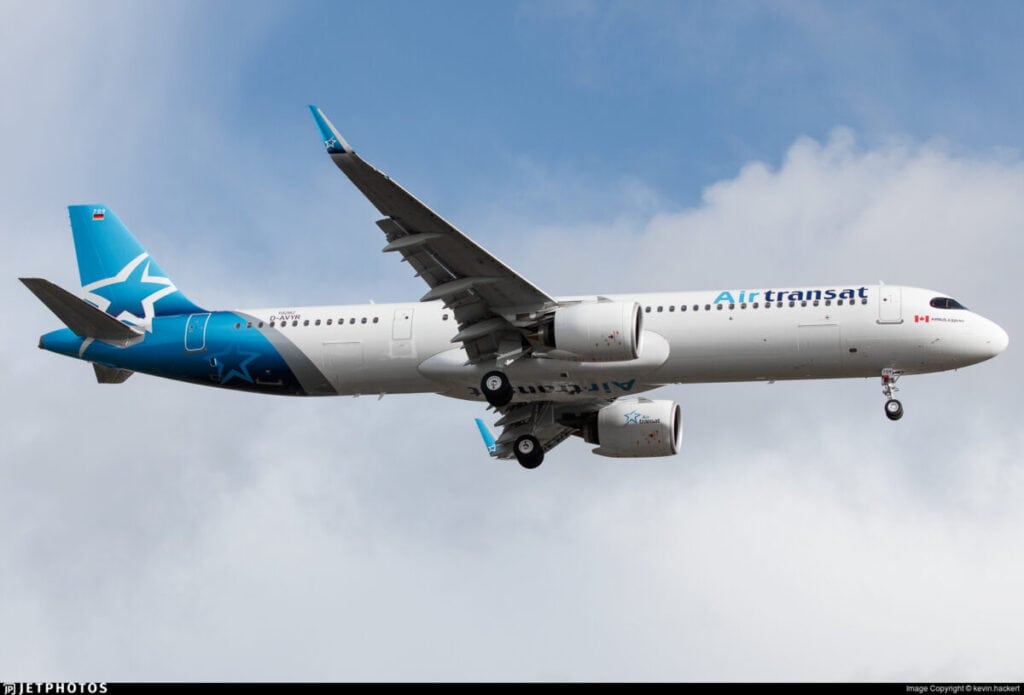
When I did that with the number provided I was informed that they did not ship pets and that I should contact another company who also did not ship pets. So then I was informed by customer service that I should arrange for a travel agent to book my pet flight. Once again this was not possible according to the 3 travel agents I spoke to. Certified service dogs are accepted on flights from London, Manchester and Glasgow. Pets in the checked baggage hold and in the cabin are accepted on flights from Manchester and Glasgow, but not accepted from London.
So all in all Air Transat customer service was absolutely useless and their website is wrong and it was just not possible for me to book the dog on a flight. I gave up at that point and went searching for a pet transport company.
I got lucky after many attempts I found the International Animal Lounge and Emily (who was a godsend) who help transport pets from Toronto and Calgary. Their partners for pet export and import include: Air Transat, Air Canada, KLM, Lufthansa, and Emirates along with a few more.
All I can say is thank god for IAL and Emily as Air Transat for some reason decided they were not flying pets into the UK on the flights we were on so Emily had to book boarding for our dog and then arrange a new flight for her. At that point we thought it was all settled until a few days before the dog was due to fly when Air Transat called Emily and told her they were embargoing all animal flights for a period of 2 weeks with no reason.
Emily then had to book our dog in two days before we were due to fly, arrange boarding in Manchester for her and arranged for us to bring her to Toronto 2 days sooner than our flight. Emily then organized everything from boarding to her flights and for us to pick up her at the kennels in Manchester. What a relief that was.
Their website says:
We have two physical locations available to cater to your pet’s each and every need. We also have access to satellite offices in Ottawa, Montreal and Vancouver. As a pet transport company, we offer exceptional services for cats and dogs relocating worldwide, as well as broker services for pet’s transporting back to Canada. We have a team of relocation specialists that all have years of experience in pet shipping, and will work side by side with you to make your pets travel as smooth as possible. At the International Animal Lounge, we’re experts in pet travel and comfort! Your pets are always treated as a part of our family when they are with us.
Air Canada – Edinburgh, Glasgow, London Heathrow (HARC), Manchester
From the other side of the Atlantic, Air Canada has an impressive pet friendly international travel policy. Air Canada is one of the few airlines that flies cats and dogs in the cabin from the UK on international flights. Pets may also travel in the hold as checked baggage or cargo. Of course, when entering the UK on an Air Canada flight, or with any other airline, your pet is only accepted as cargo in the hold.
Pet carrier sizes permitted in the cabin vary depending on the aircraft model used for your flight. But, for those flying in the hold as checked baggage, a maximum linear pet crate (L + W + H) of 292 cm (115″) is allowed. For cats and dogs to be transported as checked baggage, the weight of your pet plus their carrier mustn’t exceed 45 kg (110 lb). However, larger pets, or those flying without their owner, are accepted to fly as cargo.
From 1 July to 31 August each year, your pet can’t fly as checked baggage with Air Canada to Greece or Italy due to high temperatures in the baggage hold.
Bookings for pets travelling to or via the United Kingdom must be completed via an approved pet shipper. Due to government regulations, pets are not accepted in the cabin or in the baggage compartment. However, they may travel as cargo, and all bookings must be made through Air Canada Cargo.
British Airways
If you’re travelling between the US and UK with a cat or dog, British Airways (BA) operates pet friendly flights over the Atlantic. However, BA doesn’t accept cats and dogs in the cabin on any flights, except of course Assistance & Service Dogs.
Your cat or dog will travel as cargo on BA operated pet flights, and for all flights to the UK, BA uses their sister company, IAG Cargo. Flights from the UK to the USA for cats and dogs are managed by Pet Air UK, which is managed and owned by licensed veterinarians.
Flying a dog or cat into Manchester Airport
Your pet will arrive at the Manchester Airport Animal Reception Centre you can collect from Servisair cargo. The Centre can be found at WFS Building, 300 World Freight Terminal, Manchester Airport. Usually pets are ready for collection (Customs and DEFRA permitting) around 90 minutes after flight arrival.
Your pets are typically prepared for pickup approximately 1.5 hours after their arrival. Therefore, once you’ve retrieved your luggage, please proceed to the Manchester Airport Pet Reception Centre to collect your cat, dog, or other animal.
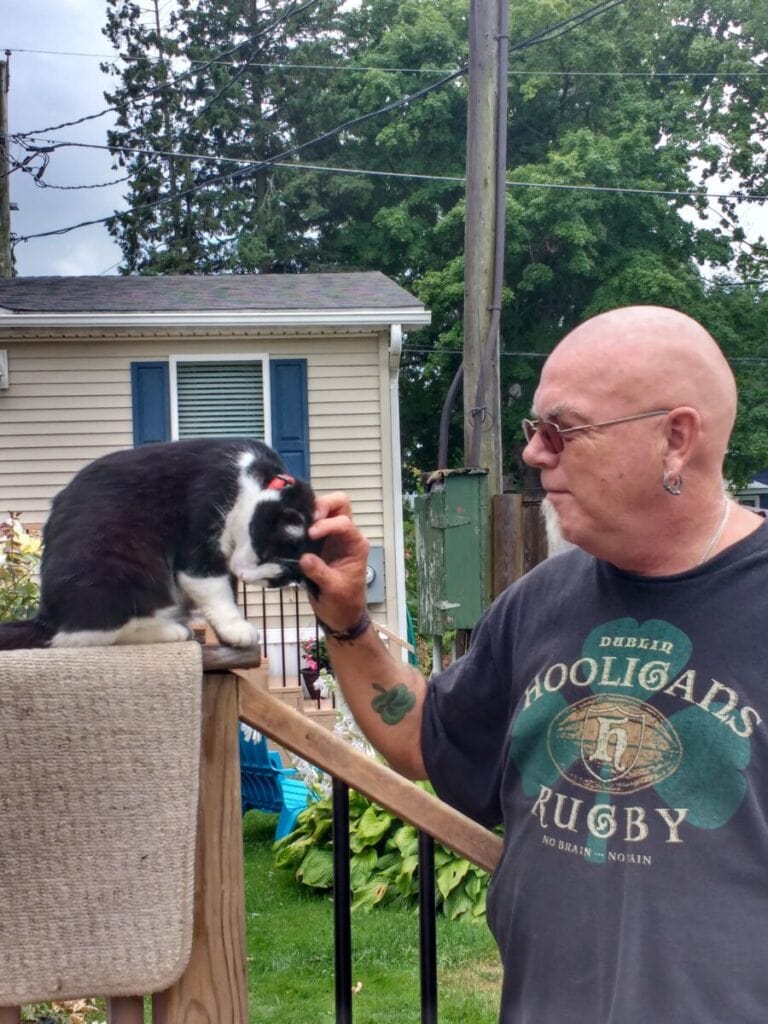
Flying a dog or cat into London Heathrow Airport
Heathrow is the largest airport in the United Kingdom, with five terminals that have flights in and out to destinations around the world. Many airlines that transport pets internationally operate flights at Heathrow, and the Heathrow Animal Reception Centre (HARC) is one of the largest animal inspection centres in the world. Every year, HARC receives millions of animals including fish, reptiles and zoo animals, besides pets.
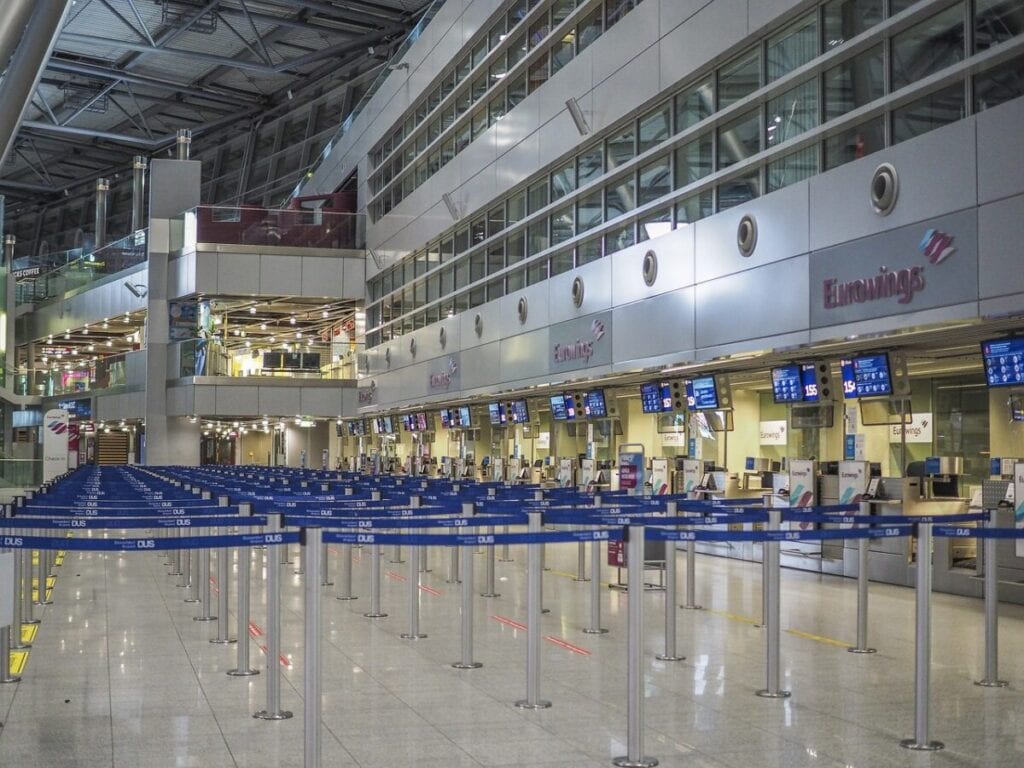
Flying to London Heathrow
Most animals travelling to London have to pass through the Centre before being allowed to enter the country. When your pet dog or cat flies into London Heathrow, he or she will be received at HARC near Terminal 4. Usually, HARC employees are responsible for collecting your pet from the aircraft and bringing them to the Animal Reception Centre. However, it is not unusual for airline staff to deliver your pet to the Centre.
Pets can only travel in the cargo hold of the aircraft when they arrive into or depart from the United Kingdom. As soon as your pet lands in Heathrow, they will be brought to HARC for a health examination to check that they are in good health. Your pet’s documentation and paperwork will then be checked to ensure that all veterinary regulations have been met. If everything is in order, your pet will be released to you without quarantine.
At HARC, your pet will undergo a vet check and a microchip scan. They will have access to water and food, and get a bathroom break. Your pet dog or cat will be released from the crate to an individual kennel to rest and wait for pick up after the examination.
Heathrow Animal Reception Centre
All pets arriving at Heathrow, no matter where they are from, have to go through an official animal check at the Heathrow Animal Reception Center (HARC) before they can go home. HARC takes care of and welcomes thousands of animals that come into the UK every year. They will inspect your pet’s health and paperwork to make sure everything follows the animal rules in the UK. This process can take about 4 to 8 hours.
The Heathrow Animal Reception Centre is where they check animals coming into Heathrow airport. When they’re working on dogs and cats at HARC, each one gets their own cozy space with heat. The dog area even has a big open space outside for them to run around in after their flight. The rooms for reptiles, amphibians, and birds have fancy systems to control the temperature and lighting.
This place is open nonstop, all day and all year, and deals with about 16,000 dogs and cats annually. In the past year alone, they’ve seen 400 horses, 2000 birds, and a whopping 28 million fish!
HARC’s main duty is making sure all the animals coming through are in good shape and have the right paperwork. You can find the Centre just off the road that goes around the airport, about half a mile before Terminal 4.
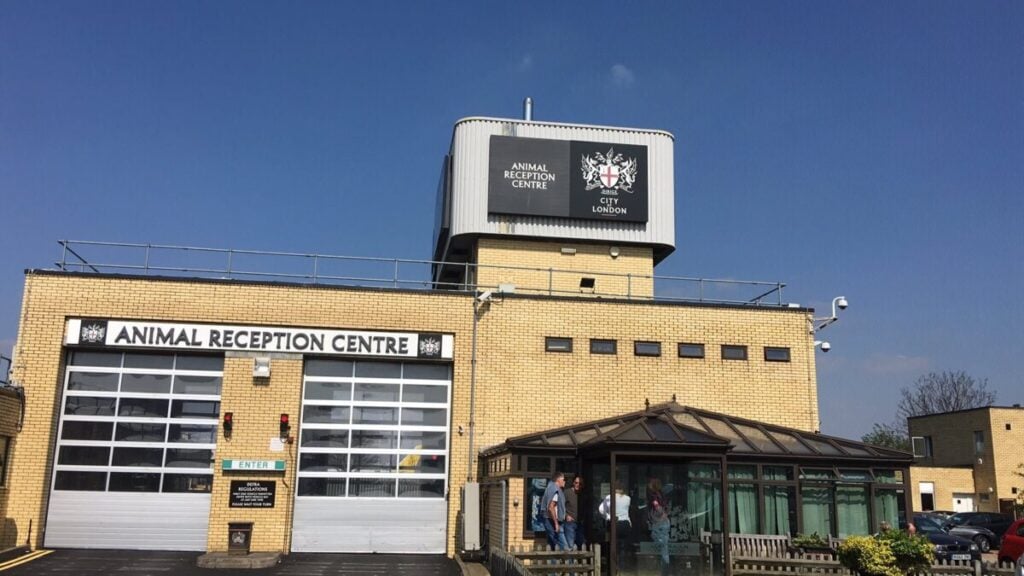
Release from HARC
The animal release process at HARC is fairly simple. If your pet is flying into Heathrow from another EU country, they will be released in about one and a half hours, provided all requirements are met.
Pets flying in from other countries will have to spend a little longer at HARC before they are released. The inspection process can take up to four hours for cats and dogs flying in from non-EU countries.
If you are flying with your pet, expect a wait of one to five hours for your pet to be restored to you. You can also plan to arrive a few hours later than your pet to minimise the waiting time. Pet parents need not fly with their pets when travelling to the UK. However, there is a five-day rule which states that pet parents must travel into the country within five days of the pet’s journey.
Alternately, an international pet transport agency can assist by picking up your pet from the reception centre and dropping them off at your door.
Can I bring my cat or ferret to the UK?
Yes, you can bring your cat or ferret to the UK, god knows why ferrets are special but the Brits seem to love a ferret. The requirements for importing cats are similar to those for dogs, including microchipping and rabies vaccination. For ferrets, additional requirements such as a blood test may be necessary. It’s important to consult with your veterinarian and the relevant authorities to ensure compliance with all the necessary regulations.
What are the alternatives for bringing pets to the UK?
If traveling by air is not an option, you may consider alternative modes of transportation such as ferry or Eurotunnel. These options allow you to bring your pet with you in your vehicle. However, you will still need to comply with all the necessary requirements, including microchipping, vaccinations, and documentation.
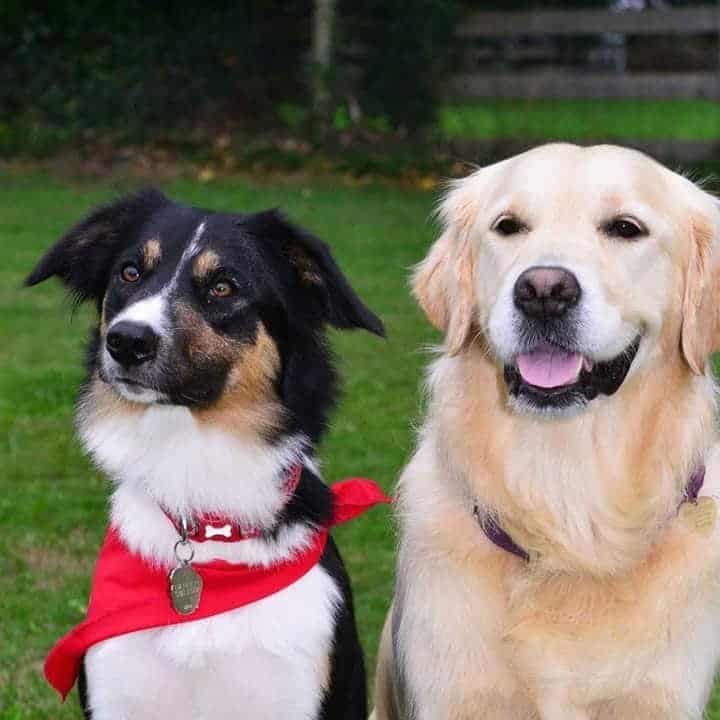
KLM & Air France
The Air France and KLM group offers international cat and dog friendly flights in Europe, and between the the UK, EU, USA and Canada. KLM and Air France permit cats and dogs weighing up to 8kg to fly in the cabin with you. On intercontinental pet flights, you can only take a pet in the cabin in Economy Class due to space underneath the seat. Therefore, pets aren’t allowed in the cabin with KLM and Air France on intercontinental flights if you travel Premium Comfort Class or Business Class. So, you’ll have to go basic!
The cost of flying a cat or dog with KLM and Air France on a transatlantic route will cost up to €200, depending on whether your cat or dog travels in the cabin or hold, and the planned itinerary. An additional €150 is payable if your pet is flying in the hold and there’s a layover of more than two hours at Amsterdam Airport, as they’ll visit the KLM/Air France Amsterdam Airport Pet Reception Centre between flights.
Getting your dog (pet) from Paris CDG to the UK
Book a pet taxi
You can enter or return to Great Britain with your pet cat, dog or ferret if it: has been microchipped. has a pet passport or health certificate. has been vaccinated against rabies – it will also need a blood test if you’re travelling from an country that is not ‘listed’. You can book a pet taxi from Paris (France) to London (UK) with Paris Airport Pickup. They can provide private pet taxi service from Paris Charles de Gaulle, Orly and Beauvais airport to the UK. The cost can range from £500 or euros to anywhere over £1500 pounds or euros depending on your requirements. Door to door service always costs more.

Move to the UK – How much does it cost to bring a pet to the UK?
The cost of bringing a dog from North America to the UK can vary widely depending on several factors, including the size of the dog, the mode of transportation, and the specific requirements for importation. My costs for bringing Cleo to England including the required microchip, rabies and shipping costs Here are some of the potential costs and considerations:
- Microchipping: Most countries, including the UK, require dogs to be microchipped for identification. The cost of microchipping can vary but is typically around $100 to $200. Remember you need a 15 digit microchip that is ISO certified.
- Rabies Vaccination: Dogs must be vaccinated against rabies. The cost of the rabies vaccine can range from $100 to $150. Cleo’s shots and chip cost $300 Canadian.
- Blood Tests: Depending on the country of origin and the specific requirements, your dog may need to have a blood test to ensure the rabies vaccine has provided sufficient protection. This can cost several hundred dollars.
- Pet Passport or Health Certificate: You may need to obtain a pet passport or a health certificate from a veterinarian. This could cost $100 to $200 or more.
- Transportation: The cost of transporting your dog to the UK can vary widely depending on the airline, the size of your dog, and the class of travel. For example, flying a small dog in the cabin with you may cost around $100 to $200, while shipping a dog or cat in the cargo hold could cost several hundred to thousands depending on your pet shipper. Getting Cleo to the UK cost us $2900 Canadian after all the required documentation and shots and of course the boarding fees thanks to Air Transat’s cancellations.
- Import Fees and Taxes: You may need to pay import fees and taxes when bringing your dog into the UK. The specific fees can vary.
Our costs for bringing Cleo to the UK from Toronto Pearson Airport to Manchester Airport are as follows:
Rabies vaccination an microchip: $400
Cost of Health Certificate from Vet: $150
CFIA Animal Health Certification $88
Cargo shipping of Cleo via IAL: Cargo Screening 50.00, Air Waybill Fee (Export) 75.00, Check In Fee at Airline 75.00, IAL Service Fee International 500.00, Destination Charges Including: Import Entry Customs Clearance Airline Handling Animal reception center fees Handover at MAN airport ***excludes arrival charges for weekend or holiday*** ***excludes VAT / Import Tax (if applicable)***575.00, HST (ON) on sales 13.00% 74.75 and boarding fees both in Toronto and Manchester.
Grand total of $2,094.75
Bringing your dog (Pet) to the UK conclusion
If you are considering bringing your dog with you from Canada to the UK, it is important to carefully consider the necessary steps and requirements involved. The UK has strict regulations in place to ensure the health and safety of both animals and humans.
As a responsible pet owner, it is crucial to plan ahead and thoroughly research the regulations set by the UK government. The process typically involves getting your dog vaccinated against rabies and microchipped, as well as obtaining a pet passport and completing a tapeworm treatment.
Additionally, there are specific airlines and routes approved for transporting pets, so it is crucial to check with the airline beforehand. It is also recommended to consult with a veterinarian who is familiar with the requirements for pet travel to ensure that everything is in order. By following these guidelines and adhering to the regulations, you can ensure a smooth and stress-free journey for both you and your furry companion.

